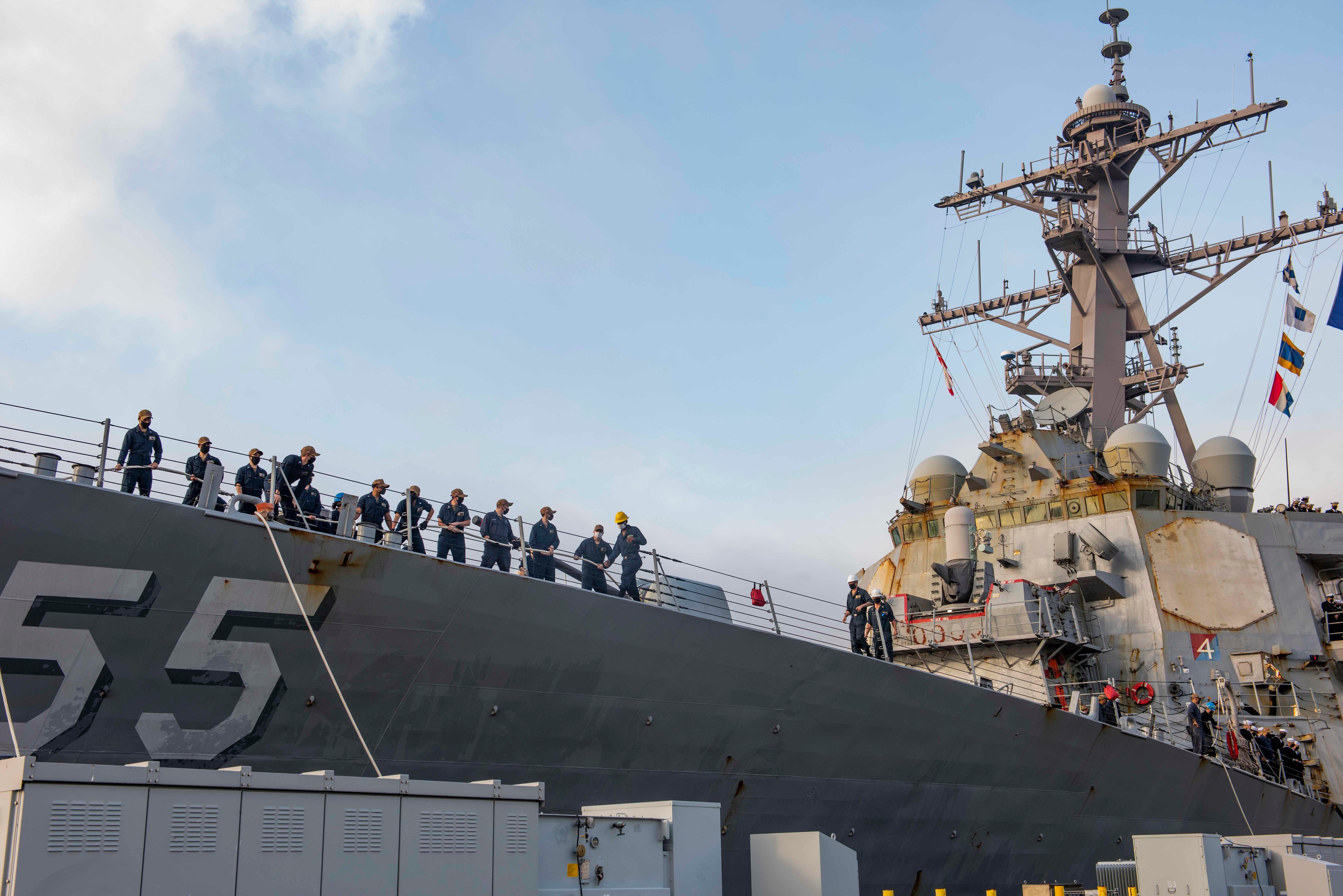Report: Navy ships face growing maintenance delays, costs
Navy ships are getting fewer steaming hours because of growing maintenance delays and costs, a troubling trend that comes as at time when the U.S. is struggling to keep pace with China’s growing fleet

Your support helps us to tell the story
From reproductive rights to climate change to Big Tech, The Independent is on the ground when the story is developing. Whether it's investigating the financials of Elon Musk's pro-Trump PAC or producing our latest documentary, 'The A Word', which shines a light on the American women fighting for reproductive rights, we know how important it is to parse out the facts from the messaging.
At such a critical moment in US history, we need reporters on the ground. Your donation allows us to keep sending journalists to speak to both sides of the story.
The Independent is trusted by Americans across the entire political spectrum. And unlike many other quality news outlets, we choose not to lock Americans out of our reporting and analysis with paywalls. We believe quality journalism should be available to everyone, paid for by those who can afford it.
Your support makes all the difference.Navy ships are getting fewer steaming hours because of growing maintenance delays and costs, a troubling trend that comes as at time when the U.S. is struggling to keep pace with China’s growing fleet.
Operating and support costs grew by about $2.5 billion across 10 ship classes while the number of propulsion hours in which ships were operating or training dipped during a 10-year period that ended in 2021, according to a report by the Government Accountability Office.
The Navy saw increased maintenance delays, breakdowns and cannibalization of parts — moving them from one ship to keep another one going — during the period.
The analysis shows “persistent sustainment challenges that have worsened,” compounded by maintenance delays and deferred maintenance noted in previous reports by the GAO, a congressional agency that audits federal programs.
“Over time this situation has resulted in worsening ship conditions and increased costs to repair and sustain ships," the GAO said.
A spokesperson for Naval Surface Forces said the Navy appreciates the GAO's recommendations for improving maintenance delivery times. The goal is for 75 warships — the figure doesn't include aircraft carriers, sealift ships or submarines — out of the 164 in the surface force to be mission capable on any given day, said Lt. Cmdr. Arlo Abrahamson.
“This imperative for 75 mission capable ships drives every program and action we take, and across our force, the enterprise is aligned to reach this north star,” Vice Adm. Roy Kitchener, commander of Naval Surface Forces, said this month at a Surface Navy Association event.
The Wasp-class amphibious assault ship and littoral combat ships experienced the greatest number of severe “casualty reports” that impair a ship’s ability to operate effectively, the GAO report said. San Antonio-class amphibious transport docks and Arleigh Burke-class destroyers experienced the biggest maintenance delays, the report said.
The maintenance delays and other problems were troubling at a time when the Navy is struggling not only to keep up with China, which already has a larger fleet, but also is facing other adversaries at sea — including Russia.
But Diana Maurer, director of defense capabilities and management at the GAO, said the Navy's leadership understands there is a problem and is focused on making improvements. “It's encouraging that it’s not business as usual,” she said.
The report, released on Wednesday, focused on surface ships and did not look at the submarine fleet. The next report will likely expand to include both surface and undersea vessels.